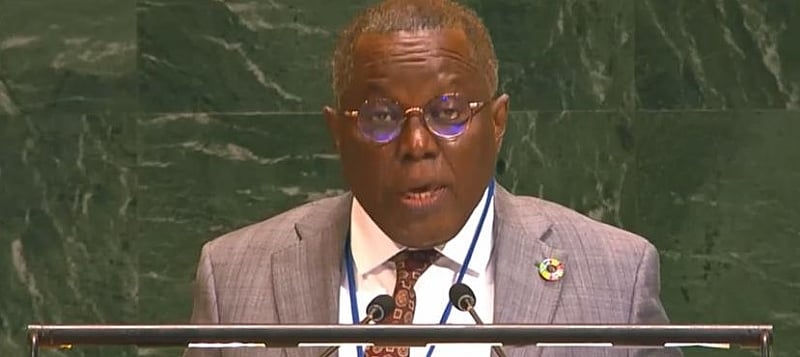The Chairman of the National Development Planning Commission (NDPC), Dr. Nii Moi Thompson, has reaffirmed Ghana’s commitment to the impactful implementation of the SDGs.
He said this during his speech at the 2025 United Nations High-Level Political Forum (UN-HLPF) Ministerial Segment on Monday in New York, where he emphasised that Ghana’s dedication to the SDGs is reflected in its strong institutions, inclusive planning processes, and collaborative efforts aimed at building a more just, resilient, and sustainable future for all.
Dr. Thompson stated that to demonstrate Ghana’s purposeful and persistent efforts to achieve the SDGs, he reviewed major developments from the 2025 Voluntary National Review.
On SDG 3 (Good Health and Well-being), Dr. Thompson stated, “Ghana has expanded access to universal health coverage, reduced under-five and neonatal mortality, decreased anaemia prevalence among infants and newborns, and digitized health records across the 261 districts of Ghana.”
Regarding SDG 5 (Gender Equality), Dr. Thompson emphasised Ghana’s significant strides in bridging gender disparities through targeted policies. He stated, “We are advancing women’s leadership, closing gender gaps in pre-tertiary education, and investing in systems to prevent gender-based violence.”
He further elaborated that Ghana is actively pursuing economic transformation by leveraging its youthful population, improving workers’ welfare, and boosting productivity to achieve SDG 8, which promotes decent work and economic growth.
Dr. Thompson also addressed SDGs 14 (Life Below Water) and 17 (Partnerships), explaining that Ghana is diligently combating illegal, unreported, and unregulated (IUU) fishing, restoring marine ecosystems, and building resilience in coastal communities.
“Concurrently, the country is strengthening partnerships through South-South collaboration, enhancing data systems, and localizing the SDGs within our Metropolitan, Municipal, and District Assemblies (MMDAs),” he added.
Despite these notable achievements, Dr. Thompson acknowledged challenges such as fiscal constraints, debt burden, weakening multilateralism and diplomacy, and inequities in the global financial architecture and technology access, which hinder Ghana’s progress toward fully realizing the SDGs.
He urged the United Nations to champion “bold reforms to the global financial architecture that empower developing nations to invest in people and the planet, actionable follow-up to the Pact for the future, ensuring commitments translate into tangible results as well as genuine partnerships that respect national ownership, build capacity, and close the digital and data divide.”


